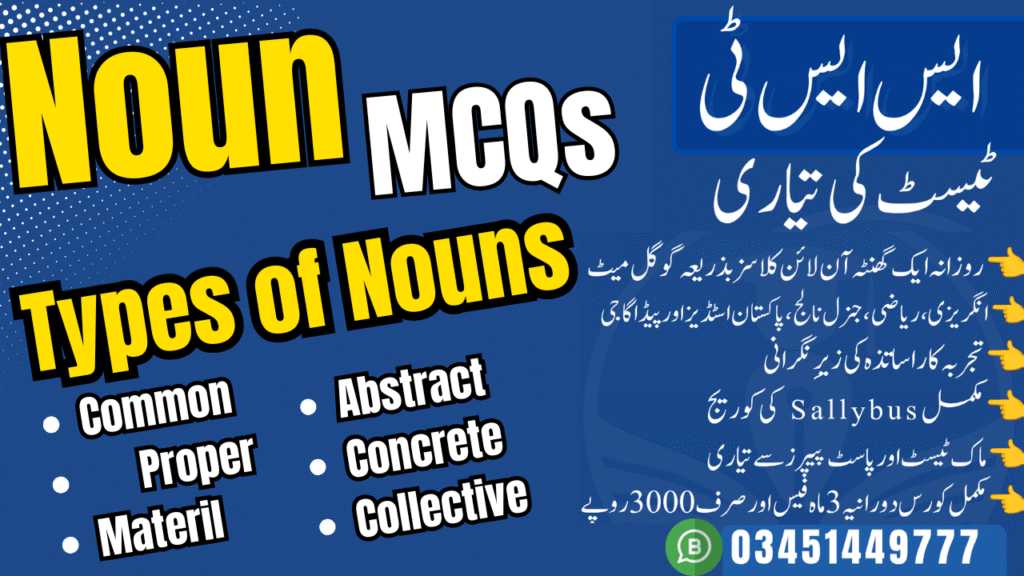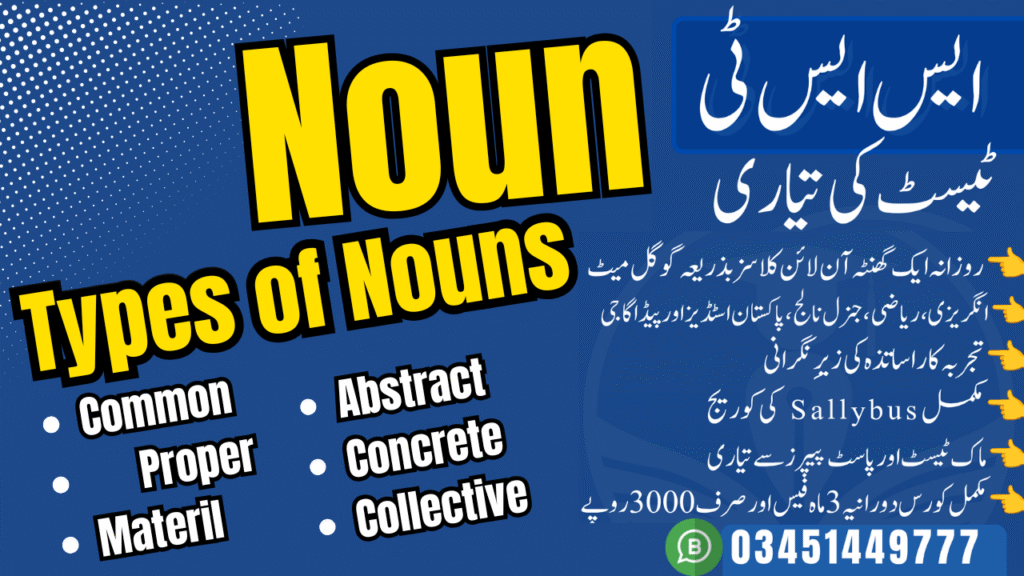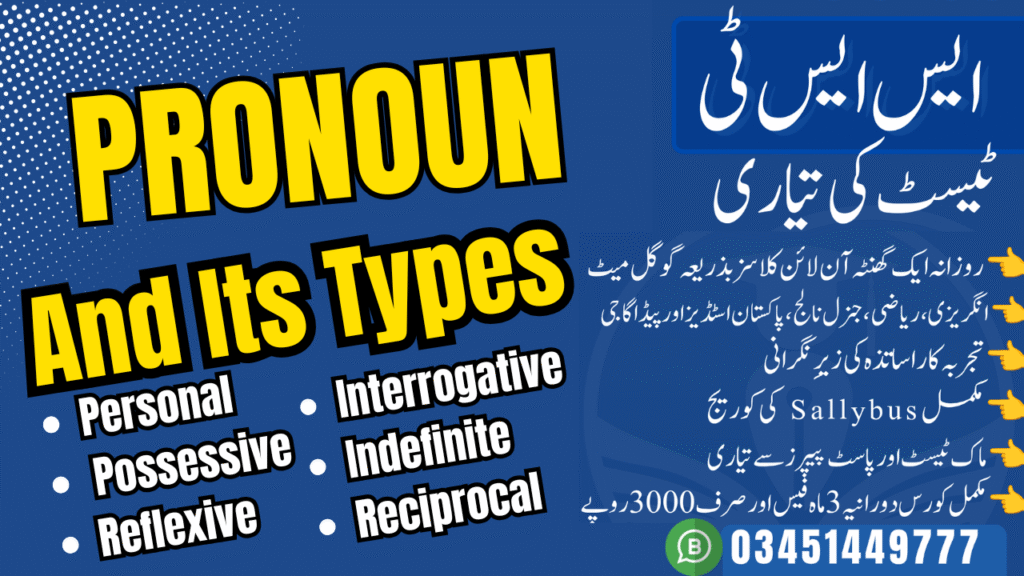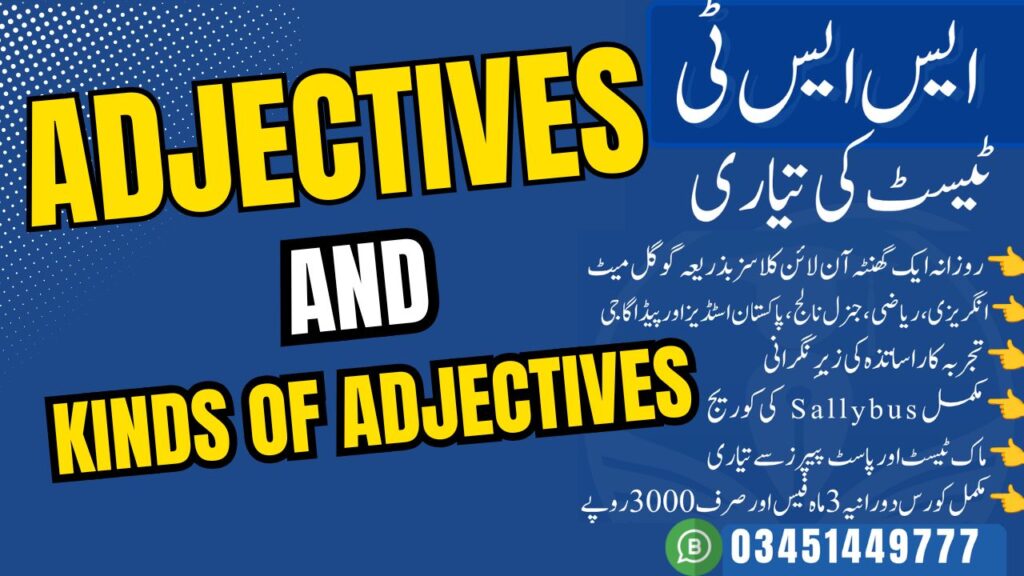- The concert will start at 8 p.m. sharp.”
- The concert starts at 8 p.m. sharp.”
- The conference will take place in Dubai next year.
- The conference starts in Dubai next year.
- The conference is going to start in Dubai next year.
A Guide to the Future Simple Tense
Mastering the language of tomorrow, today.
What is the Future Simple?
It’s a verb tense for actions happening after now. Think of it as your verbal time machine for talking about promises, on-the-spot decisions, and predictions.
The Core Formula
The structure is beautifully simple and consistent for all subjects.
[+] Affirmative: She will travel.
[-] Negative: She won’t travel.
[?] Interrogative: Will she travel?
When Do We Use “Will”?
The Future Simple has four primary functions in everyday communication. Here’s a breakdown of how it’s typically used.
Showdown: “Will” vs. “Going To”
This is a common point of confusion. Choosing the right one makes your English sound more natural. The key difference lies in planning and evidence.
| Feature | will | be going to |
|---|---|---|
| Decision |
Spontaneous Made at the moment of speaking. “The fridge is empty. I’ll go shopping.” |
Pre-Planned An intention you had before speaking. “I have a list. I’m going to go shopping.” |
| Prediction |
Opinion-Based Based on your personal belief or guess. “I think our team will win.” |
Evidence-Based Based on something you can see now. “Look at the score! They are going to win!” |
Common Learner Mistakes
Even with its simple structure, some errors are frequent. This chart shows the most common pitfalls to watch out for when using the Future Simple.
Comparing Future Tenses
How does ‘will’ compare to other future forms over time? This visualization helps clarify their relationship to a future deadline.
1. Introduction
Imagine a friend asks you, “What are you doing next week?” You pause for a moment, and then a plan forms in your mind. You reply, “I will call you tomorrow.”
In that simple response, you have just used the Future Simple Tense, also known as the Future Indefinite Tense. This tense is your verbal time machine, allowing you to speak about events that have not yet happened. It’s the language of promises, predictions, spontaneous decisions, and straightforward facts about what is to come.
The Future Simple provides the most direct way to talk about the future. While other tenses like the Present Continuous (for arrangements) or the “going to” form (for intentions) also look ahead, the Future Simple, with its clean structure of will/shall + base verb, holds a unique and essential place.
This comprehensive guide is designed for a wide range of learners—from school students and ESL learners to candidates preparing for competitive exams. Whether you are a teacher looking for a core resource for your online class, or a self-studying student aiming to master English grammar rules, this article will equip you with a deep, practical understanding of the Future Simple Tense. We will deconstruct its form, explore its diverse functions, and navigate common pitfalls, ensuring you can speak about tomorrow with confidence, today.
2. What is the Future Simple Tense?
The Future Simple Tense is a verb form used to describe an action, event, or state that is expected to happen at some point after the present moment. It expresses an action that has not occurred yet but will take place in the future.
Think of time as a straight line. You are standing at a point called “the present.” Everything behind you is “the past,” and everything ahead of you is “the future.” The Future Simple Tense allows you to point to any specific or general moment on that future timeline and state what will happen.
Definition would be:
The Future Simple Tense talks about things we decide to do now, things we think will happen, or things that will be true in the future.
The future simple tense describes actions or states that are expected to happen or exist after the present moment, using the structure “will + base form of the verb” (e.g., I will go). It’s used for predictions, spontaneous decisions, promises, offers, and to state simple future facts or plans. For example, “She will write the email after lunch” describes a future action, and “I’ll help you” is an offer made at the moment of speaking.
For example:
- It will rain later. (A prediction about a future event)
- I will finish my homework after dinner. (A decision about a future action)
- The train will arrive at 9 p.m. (A statement about a future fact)
The defining characteristic of this tense is its focus on the certainty or belief that an action will occur, without necessarily emphasizing a prior plan or arrangement. It is the default, go-to tense for making straightforward statements about the future.
3. The Importance of the Future Simple Tense
Understanding the Future Simple Tense is not just an academic exercise; it is a critical skill for effective communication in various real-world contexts. Its importance spans daily conversations, academic writing, professional correspondence, and high-stakes language proficiency exams.
A. Everyday Communication
In our daily interactions, the Future Simple Tense is indispensable for:
- Making Spontaneous Plans: When someone suggests an activity, your on-the-spot response often uses “will.”
- “The phone is ringing.” “Okay, I’ll get it.”
- Making Promises and Offers: It is the primary way we express commitment or willingness to help.
- “I will always support you, no matter what.” (Promise)
- “That bag looks heavy. I’ll help you carry it.” (Offer)
- Expressing Predictions and Opinions: We use it to talk about what we believe will happen.
- “I think our team will win the match on Sunday.”
B. Academic Writing & Storytelling
In formal and creative contexts, the Future Simple Tense helps to:
- State Future Facts or Hypotheses: In scientific or academic papers, it’s used to describe events that are certain to happen or to outline the expected results of an experiment.
- “The sun will set at 6:47 p.m. this evening.” (Fact)
- “If we add the catalyst, the reaction will accelerate.” (Hypothesis)
- Create Narratives: In storytelling, it can be used to foreshadow events or make declarations about what characters will do.
- “The king declared, ‘We will march at dawn!’”
C. IELTS/TOEFL and Other Competitive Exams
For candidates of English proficiency tests, a strong command of the Future Simple is non-negotiable.
- Speaking Tasks: Examiners often ask questions about your future plans, aspirations, or predictions about global trends.
- Examiner: “Where do you think you will be in five years?”
- Candidate: “I hope I will be working in a multinational company. I think it will be a great opportunity for my career.”
- Writing Tasks: In essay writing (like IELTS Writing Task 2), you may need to discuss the future implications of a current issue.
- “If governments do not invest in renewable energy, pollution levels will continue to rise, and this will have a devastating impact on the planet.”
In summary, the Future Simple Tense is a versatile and essential grammatical structure. Its mastery unlocks a more nuanced, confident, and accurate way of communicating your thoughts about the future, making it a cornerstone of English fluency.
4. Future Simple or Future Indefinite
When you explore grammar resources, you will encounter two names for this tense: Future Simple Tense and Future Indefinite Tense. This can be confusing for learners, but the good news is that they refer to the exact same thing.
- Future Simple Tense: This is the more common and modern term, particularly in American English and contemporary grammar guides. The word “Simple” is used to contrast it with other future forms like the Future Continuous (will be doing) and Future Perfect (will have done). It highlights the tense’s straightforward structure: will + base verb.
- Future Indefinite Tense: This term is more traditional and is still found in many British English grammar books and educational systems in South Asia (including India, Pakistan, and Bangladesh). The word “Indefinite” signifies that the action’s exact completion time is not defined or specified—it simply will happen at some point in the future.
Why are both terms interchangeable?
Both terms describe the same grammatical form and function. The choice of terminology is largely a matter of regional convention or the preference of a particular curriculum or textbook.
| Term | Common Region/Context | Rationale |
| Future Simple | USA, Canada, Modern ESL/EFL materials | Contrasts with “Continuous” and “Perfect” forms. |
| Future Indefinite | UK, South Asia, Traditional Grammar Books | Emphasizes that the action’s time is not definite. |
5. Form & Structure Simple Sentences
The structure of the Future Simple Tense is one of the easiest to learn in English because it remains consistent across all subjects. There is no need to worry about adding ‘-s’ for the third-person singular, as you do in the Present Simple.
The basic formula is:
Subject + will/shall + Base Verb (V1) + Object/Rest of the sentence
The “base verb” (V1) is the infinitive form of the verb without “to” (e.g., go, eat, study, be).
Let’s break down the structure for different types of sentences.
A. Affirmative (Positive) Sentences
This is the structure for making a positive statement about the future.
Formula: Subject + will + Base Verb (V1)…
| Subject | Auxiliary Verb | Base Verb | Example Sentence |
| I | will | go | I will go to the library tomorrow. |
| You | will | succeed | You will succeed if you work hard. |
| He | will | call | He will call you back soon. |
| She | will | travel | She will travel to London next month. |
| It | will | rain | It will rain this afternoon. |
| We | will | watch | We will watch a movie tonight. |
| They | will | finish | They will finish the project by Friday. |
B. Negative Sentences
To make a negative statement, we simply add not after the auxiliary verb will.
Formula: Subject + will + not + Base Verb (V1)…
The contraction won’t (will + not) is extremely common, especially in spoken English.
| Subject | Auxiliary Verb | Base Verb | Example Sentence |
| I | will not (won’t) | go | I will not go to the party. |
| You | will not (won’t) | forget | You won’t forget this experience. |
| He | will not (won’t) | attend | He will not attend the meeting. |
| She | will not (won’t) | agree | She won’t agree to the terms. |
| It | will not (won’t) | be | It will not be easy. |
| We | will not (won’t) | tell | We won’t tell anyone your secret. |
| They | will not (won’t) | arrive | They will not arrive on time. |
C. Interrogative (Question) Sentences
To ask a question, we invert the subject and the auxiliary verb will.
Formula: Will + Subject + Base Verb (V1)…?
For WH- questions (What, Where, When, Why, Who, How), the WH- word comes before will.
Formula: WH-word + will + Subject + Base Verb (V1)…?
| Type | Example Sentence |
| Yes/No Question | Will you join us for dinner? |
| Yes/No Question | Will she pass the exam? |
| WH- Question | When will you finish your work? |
| WH- Question | What will he say about this? |
| WH- Question | Why will they leave so early? |
D. The Case of “Shall”
Traditionally, shall was used instead of will for the first-person subjects (I, we).
- I shall return. (Formal/Traditional)
- We shall overcome. (Formal/Emphatic)
In modern English, especially American English, will is used for all subjects. Shall is now considered quite formal or archaic. However, it still survives in two specific contexts:
- Making Offers or Suggestions (in question form):
- Shall I open the window? (= Do you want me to open the window?)
- Shall we go for a walk? (= I suggest we go for a walk.)
- Formal Legal or Obligatory Contexts:
- The tenant shall pay rent on the first day of each month.
E. Contractions
In spoken English and informal writing, contractions are very common and help with fluency.
| Full Form | Contraction | Example |
| I will | I’ll | I’ll see you later. |
| you will | you’ll | You’ll do great. |
| he will | he’ll | He’ll be here soon. |
| she will | she’ll | She’ll love the gift. |
| it will | it’ll | It’ll be fine. |
| we will | we’ll | We’ll figure it out. |
| they will | they’ll | They’ll understand. |
| will not | won’t | I won’t be late. |
- Do you know the difference between want and won’t?
Understanding these structural patterns is the first step to mastering the Future Simple Tense.
6. When to Use the Future Simple Tense
Knowing the structure is only half the battle. The real key to mastery is understanding when and why to use the Future Simple Tense. It has several distinct functions that go beyond just talking about the future.
1. Decisions Made at the Moment of Speaking (Spontaneous Decisions)
This is one of the most common uses of will. We use it for decisions or intentions that are made on the spot, without any prior planning.
- (The doorbell rings)
A: “Someone is at the door.”
B: “I’ll get it.” (B just decided this now.) - A: “It’s getting cold here.”
B: “You’re right. I will close the window.” (The decision was made at the moment of speaking.) - (Looking at a restaurant menu)
“Hmm, everything looks delicious. I think I’ll have the pasta.”
2. Promises and Offers
Will is the natural choice for making promises, expressing threats (a negative promise), or offering to do something for someone.
- Promises:
- “I promise I will not tell anyone.”
- “We’ll always remember the kindness you’ve shown us.”
- “Don’t worry, I will be there for you.”
- Threats:
- “If you do that again, I will tell the teacher.”
- “Stop making noise, or I’ll send you out of the room.”
- Offers:
- “That looks difficult. I’ll help you with your project.”
- “You seem tired. I will drive you home.”
- “Shall I carry your bags for you?” (Using shall for an offer)
3. Predictions About the Future (Based on Opinion or Belief)
We use will to express what we think, believe, or guess will happen in the future. These predictions are often based on personal judgment, experience, or opinion, not on present evidence. They are frequently introduced by phrases like I think, I believe, I hope, I’m sure, perhaps, probably.
- “I think it will rain tomorrow.” (My personal opinion)
- “I’m sure you will pass your driving test. You’re a good driver.”
- “She’s very talented. She will probably become a famous artist one day.”
- “In the future, people will live on Mars.” (A general prediction)
4. Future Facts
We use will to talk about events or facts that are certain to happen in the future and are outside of our personal control.
- “The sun will rise at 6:05 a.m. tomorrow.”
- “The new year will begin on a Wednesday.”
- “I will be 25 on my next birthday.”
- “Winter will come again after autumn.”
5. Scheduled Events (Less Common Use)
While the Present Simple is typically used for fixed schedules (e.g., “The train leaves at 5 p.m.”), the Future Simple can sometimes be used in spoken English to announce or refer to such events, especially if the focus is on the future occurrence itself.
- “The concert will begin at 8 p.m. sharp.”
- “The conference will take place in Dubai next year.”
It’s important to note the subtle difference: “The train leaves at 5 p.m.” emphasizes the fixed, timetable nature of the event. “The train will leave at 5 p.m.” is a simple statement of a future fact.
7. Time Expressions Used with the Future Simple
To make our future statements more specific, we often use time expressions. These words and phrases act as signposts, indicating when the future action will happen. Using them correctly adds clarity and precision to your sentences.
Here is a list of common time expressions used with the Future Simple Tense, along with examples:
- tomorrow
- She will call you tomorrow.
- the day after tomorrow
- We will receive the package the day after tomorrow.
- soon
- Don’t worry, they will arrive soon.
- later
- I’m busy now, but I will do it later.
- tonight
- He will finish his report tonight.
- next week/month/year/summer
- The school will open next week.
- I will visit my grandparents next month.
- in + a period of time (in an hour, in two days, in five years)
- The meeting will start in ten minutes.
- They will be married in three weeks.
- on + a future day (on Monday, on Friday)
- I will submit my assignment on Monday.
- this afternoon/evening/weekend
- We will go shopping this afternoon.
- by + a future point in time (less common, often with Future Perfect, but can be used)
- You will receive a notification by the end of the day.
- eventually
- If you keep trying, you will eventually succeed.
- in the future
- In the future, robots will perform most manual labor.
Placing these time expressions correctly is also important. They usually come at the end of the sentence, but can sometimes be placed at the beginning for emphasis.
- End of sentence (most common): They will launch the new product next year.
- Beginning of sentence (for emphasis): Next year, they will launch the new product.
8. Rules & Patterns
Beyond the basic structure, there are some important rules and patterns to understand for using the Future Simple Tense accurately and appropriately.
A. Subject-Verb Agreement (The Easy Part!)
Unlike the Present Simple, the Future Simple does not change its form based on the subject. The structure will + base verb is the same for all persons and numbers (I, you, he, she, it, we, they).
- He will go. (Correct)
- He wills go. (Incorrect)
- He will goes. (Incorrect)
This simplicity makes it one of the easier tenses to conjugate.
B. Will vs. Shall (Modern vs. Traditional Usage)
As discussed earlier, the distinction has faded over time. Here’s a summary for modern usage:
- Will: Use will for all subjects (I, you, he, we, they) in affirmative and negative sentences to express future actions, promises, predictions, etc. This is always the safe and correct choice.
- Shall: Restrict the use of shall to two main situations:
- Questions for offers/suggestions with “I” and “we”:
- Shall I get you a glass of water?
- Shall we begin the presentation?
- Very formal or legal documents to express an obligation:
- The company shall not be liable for damages.
C. Use of “going to” vs. “will” (A Crucial Comparison)
This is one of the most common areas of confusion for English learners. While both will and be going to talk about the future, they are not always interchangeable. They carry different shades of meaning.
| Feature | will (Future Simple) | be going to |
| Decision | Spontaneous Decision: Made at the moment of speaking. | Prior Plan / Intention: Decided before the moment of speaking. |
| Example | A: “The fridge is empty.”B: “I’ll go and buy some groceries.” | I’ve bought the tickets. “I’m going to watch the movie tonight.” |
| Prediction | Based on Opinion/Belief: Subjective guess about the future. | Based on Present Evidence: Something we can see now that indicates what will happen. |
| Example | “I think it will be a close game.” (My opinion) | “Look at those dark clouds. It’s going to rain.” (Visual evidence) |
Choosing between will and going to correctly will make your English sound much more natural and precise.
D. Avoiding Misuse with Stative Verbs
Stative verbs describe states, feelings, senses, or thoughts rather than actions (e.g., be, know, love, understand, seem). Like other verbs, they can be used perfectly in the Future Simple to talk about a future state.
- After this course, you will know how to code in Python.
- He will be happy to see you.
- I’m sure she will understand your situation.
The key is not to confuse this with the continuous form. Stative verbs are rarely used in continuous tenses.
9. Common Errors & How to Avoid Them
Even with its simple structure, learners often make predictable mistakes with the Future Simple Tense. Being aware of these common errors is the first step toward avoiding them.
Error 1: Using the wrong verb form after “will”
A very common mistake is to use the past tense (V2) or the ‘-s’ form of the verb instead of the base form (V1).
- Mistake: I will went to the store.
- Correction: I will go to the store.
- Rule: Always use the base form (infinitive without ‘to’) of the verb after will.
- Mistake: She will calls you later.
- Correction: She will call you later.
- Rule: will does not change for the third person. The main verb remains in its base form.
Error 2: Confusing Future Simple with Present Continuous for future plans
The Present Continuous is used for fixed arrangements or appointments, especially social ones. Using will for these can sound unnatural.
- Context: You have booked a flight and have a fixed plan.
- Less Natural: I will fly to Paris next Tuesday.
- More Natural: I am flying to Paris next Tuesday.
- How to Avoid: If it’s a fixed arrangement you’ve already made with someone else (like an appointment or a planned meeting), use the Present Continuous. If it’s a spontaneous decision, promise, or prediction, use will.
Error 3: Overusing “will” where “going to” is better
As explained in the comparison section, using will for a pre-decided plan or a prediction based on clear evidence can sound incorrect.
- Context: You see a person running towards a bus stop, but the bus is already pulling away.
- Mistake: Oh no, he will miss the bus.
- Correction: Oh no, he is going to miss the bus. (The evidence is right there.)
- How to Avoid: Before making a prediction, ask yourself: Is this based on my opinion, or on something I can see/hear right now? If it’s based on evidence, use going to.
Error 4: Incorrect structure for negatives and questions
Learners sometimes struggle with the word order in negative and interrogative sentences.
- Mistake (Negative): I no will come. or I will no come.
- Correction: I will not (won’t) come.
- Rule: not comes directly after will.
- Mistake (Question): You will come tomorrow? (This is common in spoken English but grammatically incorrect for a formal question).
- Correction: Will you come tomorrow?
- Rule: Invert the subject and will to form a question.
By reviewing these common errors, you can self-correct and build more accurate habits.
10. Comparison with Other Tenses
To truly master the Future Simple, it’s helpful to see how it stands in relation to other tenses and structures used to talk about the future.
A. Future Simple (will) vs. Going to
This is the most critical comparison.
| Aspect | Future Simple (will) | be going to |
| — | — | — |
| Meaning | Spontaneous decision, promise, offer, opinion-based prediction, future fact. | Pre-existing plan/intention, evidence-based prediction. |
| Example 1 | “I’m thirsty. I think I’ll buy a drink.” | “I’m thirsty. I’m glad I brought a water bottle. I’m going to drink some now.” |
| Example 2 | “I believe Brazil will win the World Cup.” | “Brazil is playing very well and their star player just scored. They are going to win this match.”|
B. Future Simple vs. Present Continuous (for future meaning)
| Aspect | Future Simple (will) | Present Continuous (am/is/are + V-ing) |
| Meaning | Focuses on the prediction, promise, or decision itself. | Used for fixed arrangements, appointments, or definite plans with other people. |
| Example 1 | “I’ll meet you there.” (A spontaneous decision or promise) | “I’m meeting Sarah for lunch at 1 p.m. tomorrow.” (A fixed appointment) |
| Example 2 | “I’ll probably travel next year.” (A general intention) | “I’m traveling to Spain next month. I’ve already booked my tickets.” (A definite arrangement) |
C. Future Simple vs. Future Perfect (will have + V3)
| Aspect | Future Simple (will) | Future Perfect (will have + V3) |
| Meaning | Describes an action that will happen at some point in the future. | Describes an action that will be completed before a specific point in the future. |
| Example 1 | “I will finish my homework.” (Sometime in the future) | “By 10 p.m., I will have finished my homework.” (The homework will be complete before 10 p.m.) |
| Example 2 | “She will move to a new house.” | “By the end of this year, she will have moved to a new house.” |
D. Future Simple vs. Modal Verbs for Future (might, may, can)
Will expresses a high degree of certainty. Other modal verbs express different levels of possibility or ability.
| Modal Verb | Meaning for the Future | Example |
| will | Certainty / Strong Belief: It is certain or very probable. | She will be at the party. |
| may / might | Possibility: It is possible, but not certain (might is slightly less certain than may). | She may be at the party. / She might come later. |
| can | Ability / Possibility: It is possible or someone has the ability to do it. | I can help you tomorrow if you’re free. |
Understanding these nuances will allow you to express your thoughts about the future with greater precision.
The Interactive Future Simple Tense
An Explorer’s Guide to Talking About Tomorrow
1. Core Concepts
Definition
The Future Simple Tense describes actions expected to happen after the present moment. It’s the most direct way to talk about the future, focusing on the certainty or belief that an action will occur, often without a prior plan.
Example: “I think it will rain later.”
The Basic Formula
Affirmative: He will call soon.
Negative: They will not (won’t) agree.
Interrogative: Will you join us?
2. Usage in Action
Click a button to explore how ‘will’ is used in different situations.
3. Tense Comparisons
Conceptual Differences
This chart visualizes the “intent” behind future forms. “Will” is high on spontaneity, while “Going to” is based on prior plans and evidence.
Side-by-Side Examples
See the difference in action. A spontaneous offer versus a stated intention.
Using ‘will’
Spontaneous Decision
“The phone is ringing. I’ll get it.”
Using ‘be going to’
Prior Intention
“I have my shopping list. I’m going to buy some groceries.”
Prediction Difference
Opinion vs. Evidence
➤ ‘will’ (Opinion): “I think Team A will win the cup next year.”
➤ ‘going to’ (Evidence): “Look at those dark clouds. It’s going to rain.”
4. Common Mistakes
Frequency of Common Errors
Using the wrong verb form after ‘will’ is the most common pitfall for learners. This chart shows what to watch out for.
Mistake:
Correction:
5. Practice Zone
11. Examples & Practice
Theory is important, but practice is what builds fluency. Here is a large collection of examples and exercises to help you internalize the Future Simple Tense.
A. 50+ Example Sentences
Affirmative:
- I will call you back in five minutes.
- You will see what I mean.
- He will surely forget to bring the documents.
- She will become an excellent doctor.
- It will be a long journey.
- We will probably stay home tonight.
- They will announce the results next week.
- I think the weather will be nice this weekend.
- You’ll understand everything eventually.
- He’ll be here any minute now.
- She’ll accept the job offer.
- We’ll find a solution to this problem.
- They’ll travel the world one day.
- The sun will set soon.
- This movie will win an award.
Negative:
16. I will not (won’t) tolerate this behavior.
17. You won’t believe what happened.
18. He will not join the team.
19. She won’t be happy about the news.
20. It won’t work without the right software.
21. We will not surrender.
22. They won’t finish on time.
23. I promise I won’t be late.
24. You won’t find a better deal anywhere else.
25. He won’t listen to our advice.
26. She won’t give up easily.
27. It won’t rain today, the sky is clear.
28. We won’t forget your help.
29. They won’t know the difference.
30. The battery won’t last much longer.
Interrogative:
31. Will you marry me?
32. Will he be at the meeting tomorrow?
33. Will she recognize us after all these years?
34. Will it be cold outside?
35. Will we arrive on time?
36. Will they accept our proposal?
37. When will you return?
38. What will you do after graduation?
39. Where will she stay in Paris?
40. Why will he sell his car?
41. How will they manage without our support?
42. Who will lead the project?
43. Shall I get you a cup of tea?
44. Shall we dance?
45. Won’t you stay for a little while?
B. Dialogues Using Future Simple
Dialogue 1: Making a Spontaneous Plan
- Anna: I’m so bored. There’s nothing to do.
- Ben: I know! Wait, I have an idea. We’ll bake a cake.
- Anna: A cake? But we don’t have any flour.
- Ben: No problem. I’ll run to the store and get some. It won’t take long.
- Anna: Okay! Shall I preheat the oven?
- Ben: Yes, great idea! This will be fun.
Dialogue 2: A Promise and a Prediction
- Maria: I’m really nervous about my job interview tomorrow.
- David: Don’t worry. You’ll do great. You are very qualified.
- Maria: I hope so. What will they ask me?
- David: They will probably ask about your previous experience. Just be confident. I’m sure they will love you.
- Maria: Thanks, David. I feel a bit better.
- David: I promise I’ll call you tomorrow evening to see how it went.
C. Exercises with Answer Key
Exercise 1: Fill-in-the-Blanks
Complete the sentences using will or won’t and the verb in parentheses.
- I’m too tired to walk home. I think I __________ a taxi. (take)
- It’s very cold. I __________ the window. (close)
- He __________ the exam. He hasn’t studied at all. (probably / fail)
- Don’t worry about the broken vase. I __________ you a new one. (buy)
- A: “Can you help me with this?” B: “Sorry, I can’t. I __________ time.” (not / have)
- The company __________ its new headquarters next year. (build)
- I promise I __________ your secret to anyone. (not / tell)
- __________ you __________ me with my luggage, please? (help)
- Look at the time! We __________ late for the train. (be)
- She is very busy, so she __________ to the party. (not / come)
Exercise 2: Multiple-Choice Questions (will vs. going to)
Choose the best option to complete the sentence.
- A: “The phone is ringing.” B: “I __________ it!”
a) am going to get
b) will get - Look at those black clouds! It __________.
a) will rain
b) is going to rain - I’ve decided. I __________ my job next month.
a) will quit
b) am going to quit - I think my favorite team __________ the championship.
a) will win
b) is going to win - A: “Why did you buy so much paint?” B: “I __________ my room this weekend.”
a) will paint
b) am going to paint
Exercise 3: Sentence Correction
Find and correct the mistake in each sentence.
- He will travels to Japan next summer.
- They no will be happy with the decision.
- When you will arrive at the airport?
- I’m sure she wills love her birthday present.
- I will called you yesterday.
Creative Writing Prompt
Write 5 predictions about the year 2050 using the Future Simple Tense. Think about technology, society, and the environment.
Example: In 2050, people will travel in flying cars.
Answer Key
Exercise 1:
- will take
- will close
- will probably fail
- will buy
- won’t have
- will build
- won’t tell
- Will you help
- will be
- won’t come
Exercise 2:
- b) will get
- b) is going to rain
- b) am going to quit
- a) will win
- b) am going to paint
Exercise 3:
- He will travel to Japan next summer.
- They will not (won’t) be happy with the decision.
- When will you arrive at the airport?
- I’m sure she will love her birthday present.
- I will call you tomorrow. (The time marker was also incorrect for the future tense).
Future Simple Tense Test No. 1 (100 MCQs)
By Arshad Yousafzai for all test Preparation
ZONE OF EDUCATION– Consultants & Academy
Address: Office No. 35 & 37, Sultan Tower, Makanbagh, Mingora, Swat, Khyber Pakhtunkhwa, Pakistan
Contact: 📞 0946-712777 | 📱 0341-4497777 | 📱 0301-1449777
Email: info@zoneofeducation.com
Website: https://zoneofeducation.com
🎯 Services:
- Study Abroad & Visa Consultancy (All European Countries, UK, USA, Canada, Australia)
- IELTS, PTE, TOEFL, Duolingo Test Preparation
- Research Proposal, Thesis, and SOP Writing Assistance
- GRE, GMAT, GAT, ETEA, HEC-ETS Test Preparation
Time Limit: 60 Seconds per Question.
Question 1 of 100
Score: 0
Test Complete!
You scored out of 100 questions correctly.







